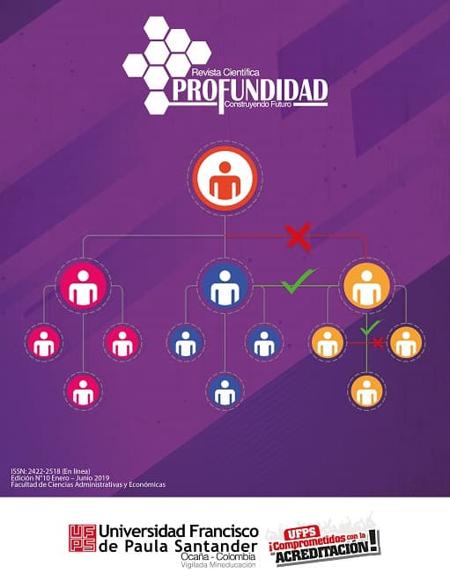PESEM socio-business educational project a bet to train, captivate and educate the public of interest of the cooperative of the department of Cauca CODELCAUCA
PESEM Proyecto Educativo Socio Empresarial una apuesta para formar, cautivar y educar al público de interés de la Cooperativa del Departamento del Cauca CODELCAUCA
Main Article Content
The research carried out responds to the need to establish a proposal for a Social and Business Educational Project (PESEM) for the CODELCAUCA Cooperative, an entity in the solidarity sector that has offered its services 42 years ago and is the largest local Cooperative in the Department of Cauca, the research Its objective is to build a training proposal that fosters the culture of the solidarity economy and improves the member's sense of belonging, designing pertinent pedagogical strategies that promote their participation, proposing a series of training alternatives aimed at improving educational aspects. The methodology used is framed within a descriptive quantitative and qualitative approach, using research tools such as the interview, conversational interaction and the survey of 350 associates; The current situation of the organization was known and based on it, the PESEM was carried out for the entity, its development allowed identifying the training needs present among the members and other members of the Cooperative, as a result of the socio-economic changes that have been developed in recent years, likewise, the important role that information and communication technologies play in educational processes is evident today.
Downloads
Article Details
Decreto 4122 de 2011. “por medio del cual se transforma el Departamento Administrativo Nacional de Economía Solidaria, Dansocial, en la Unidad.
Departamento A (2000). Directiva 31 de 7 de julio. DANSOCIAL. Administrativo Nacional de Economía Solidaria.
Drucker. (1954). The Practice of Management
Kotler. P. (1990). Introducción al marketing.
Ley 454 de 1998. Por la cual se determina el marco conceptual que regula la economía solidaria, se transforma el Departamento Administrativo Nacional de Cooperativas en el Departamento Nacional de la Economía Solidaria, se crea la Superintendencia de la Economía Solidaria, se crea el Fondo de Garantías para las Cooperativas Financieras y de Ahorro y Crédito, se dictan normas sobre la actividad financiera de las entidades de naturaleza cooperativa y se expiden otras. Agosto 6 de 1998. D.O.N° 43.357,
Ley 115 de 1994. Como Ley General de la Educación en Colombia, fija los parámetros para los procesos de formación, su calidad, cubrimiento y fines.
Ley 79 de 1988 "Por la cual se actualiza la Legislación Cooperativa".
Perrenoud. (2000). La estrategia de proyectos. Aprender en la escuela a través de proyectos: ¿Por qué? ¿Cómo?” Revista de Tecnología Educativa (Santiago de Chile),14 (3), pp. 311‐321.
Porter. M. E. (2009). Ser competitivo.
Ediciones Deusto. Barcelona. 2009, p. 219.
Resolución 194 de 2001 de DANSOCIAL: "por la cual se establecen los fundamentos, criterios, parámetros y requisitos de los procesos de inducción y educación en economía solidaria, y la expedición de los certificados de acreditación sobre educación en teoría y práctica de la misma"










